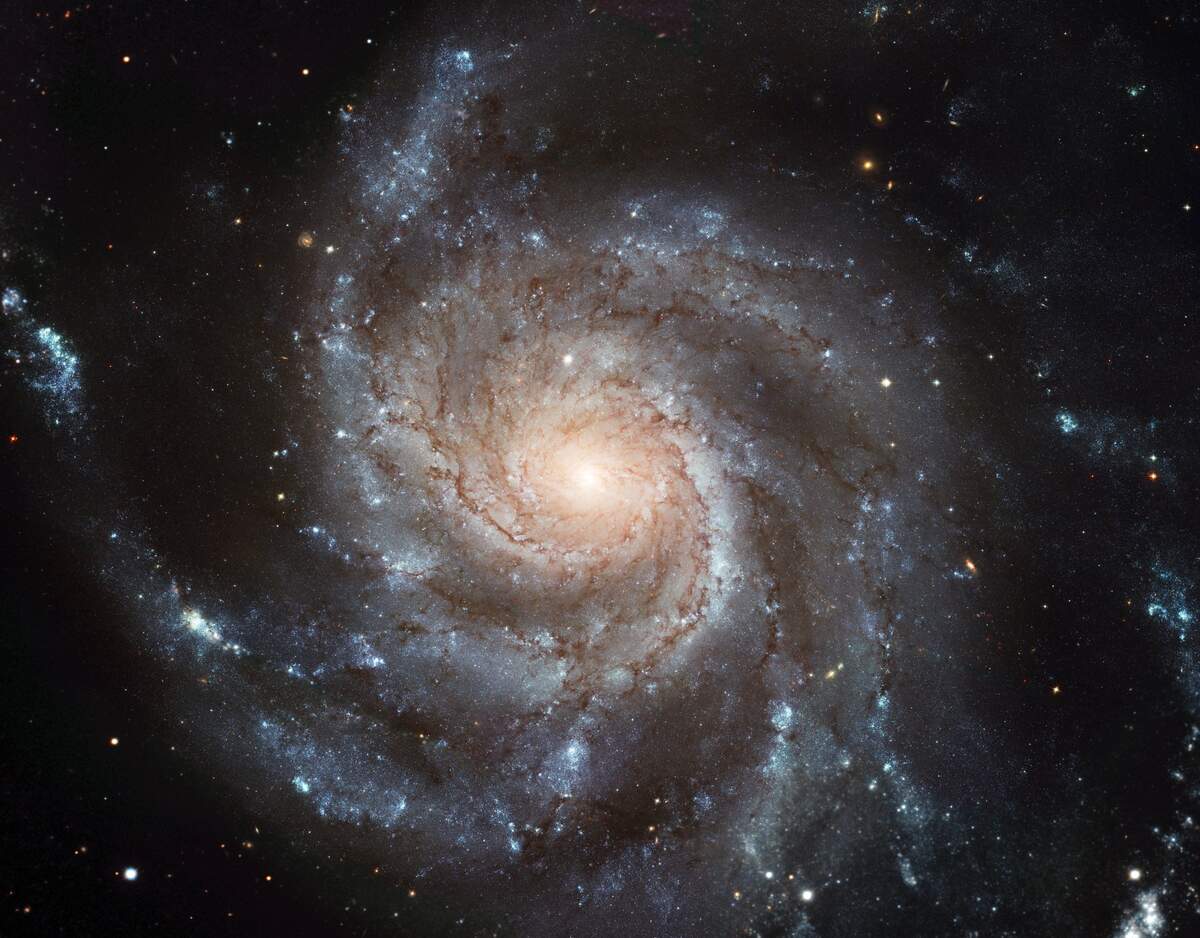

National Science Fiction Day
Observed
annually on January 2nd
Dates
Tags
Film & Television
Literature & Writing
Science & Technology
Hashtags
Sources
https://en.wikipedia.org/wiki/National_Science_Fiction_Day
https://en.wikipedia.org/wiki/Science_fiction
https://www.asimovs.com/wp-content/uploads/2022/09/Guest_Editorial_CelebrateNationSFDay-Jun13.pdf
https://www.biography.com/authors-writers/isaac-asimov
https://www.britannica.com/biography/Isaac-Asimov
https://www.anrdoezrs.net/links/100298379/type/dlg/https://www.newspapers.com/image/365446138/
https://www.anrdoezrs.net/links/100298379/type/dlg/https://www.newspapers.com/image/827656167/
National Science Fiction Day promotes the science fiction genre, celebrates its creators and history, and commemorates the birthday of renowned science fiction author Isaac Asimov, who was born on January 2, 1920. Born Isaak Yudovich Ozimov in Petrovichi, Russia, young Isaak and his family immigrated to America from Russia when he was a toddler, making their home in Brooklyn and changing their name to Asimov. Asimov worked in his father's candy stores while growing up. After graduating high school at 15, he entered Columbia University, where he earned a Bachelor of Science, M.A., and Ph.D. He married Gertrude Blugerman in 1942. He began working at Boston University School of Medicine in 1949 and became an associate professor in biochemistry in 1955. However, writing was his passion and he pursued it throughout his tenure as a professor.
His first published writing was in science fiction magazines, starting with "Marooned Off Vesta" in Amazing Stories in 1939. Many of his stories appeared in Astounding Science-Fiction, and its editor, John W. Campbell, Jr., became Asimov's mentor. Asimov's short story "Nightfall" (1941) garnered him wide acclaim and is now known as one of the best science fiction short stories of all time.
Asimov's first novel, Pebble in the Sky, was published in 1950. His second book, a story collection titled I, Robot, released the same year, became one of his most influential works. It set a foundation for ethics for robots with its "Three Laws of Robotics," which rejected previous conceptions of robots and influenced writers who followed:
A robot may not injure a human being, or, through inaction, allow a human being to come to harm; a robot must obey the orders given to it by human beings except where such orders would conflict with the First Law; and a robot must protect its own existence as long as such protection does not conflict with the First or Second Laws.
Foundation (1951), followed by Foundation and Empire (1952) and Second Foundation (1953), in what became known as the Foundation trilogy, became his other most influential works. His short stories continued into the 1950s, too, and beyond, with pieces such as "The Martian Way" (1952), an allegory on McCarthyism, "The Dead Past" (1956), about a device that can look back into history, and "The Ugly Little Boy" (1958), about a nurse's attachment to a Neanderthal boy who had been brought from the past. One of his best-known short stories, "Bicentennial Man" (1976), is about a robot who endeavors to become a human. He also wrote a monthly column for The Magazine of Fantasy and Science Fiction from 1958 to 1991.
Asimov was extremely prolific, writing almost 500 books. Although his main focus was science fiction, he did write other genres, publishing literary biographies and books about math, religion, astronomy, and biology. He received the Nebula and Hugo awards, two of the most prestigious awards for science fiction literature. Isaac Asimov died on April 6, 1992, at the age of 72, from heart and kidney failure. He also suffered from AIDS, which he got from a blood transfusion during bypass surgery.
Science fiction—or sci-fi or SF—is a genre of speculative fiction that usually contains futuristic concepts like space exploration, time travel, extraterrestrial life, advanced science and technology, and parallel universes. There are many subgenres. Sometimes science fiction addresses what the consequences of technological, scientific, and social innovations could be. Asimov defined it as "that branch of literature which deals with the reaction of human beings to changes in science and technology." Science fiction appears in literature, film, television, and other media, not only as entertainment but to denounce modern-day society and present alternative realities.
Elements of science fiction can be found in the literature of ancient times. A True Story by Lucian, from the 2nd century BCE, has many similarities to modern science fiction, and some believe it to be the first science fiction novel. Elements of science fiction can also be found in The Arabian Nights, The Tale of the Bamboo Cutter, and Theologus Autodidactus, published between the ninth and thirteenth centuries CE. Notable science fiction works of the seventeenth and eighteenth centuries include Somnium (1634) by Johannes Kepler, New Atlantis (1627) by Francis Bacon, Gulliver's Travels by Jonathan Swift (1726), and Micromégas by Voltaire (1752).
Following the development of the novel as a literary form in the seventeenth century, Mary Shelley's Frankenstein (1818) and The Last Man (1826) helped define science fiction novels in the nineteenth century. Some other important science fiction novels from the century include Jules Verne's Twenty Thousand Leagues Under the Sea (1870) and the works of H.G. Wells, such as The Time Machine (1895), The Island of Doctor Moreau (1896), The Invisible Man (1897), and The War of the Worlds (1897).
In 1924, Russian author Yevgeny Zamyatin published We, one of the first dystopian novels. Amazing Stories, which Asimov would later contribute stories to, launched in 1926, becoming the first science fiction magazine. The Skylark of Space, written by E.E. "Doc" Smith, with the help of Lee Hawkins Garby, was published in 1928, and is regarded as the first great space opera. John W. Campbell Jr. became the editor of Astounding Science-Fiction in 1937, a watershed moment that is seen by most science fiction adherents as ushering in the Golden Age of Science Fiction.
Asimov, Arthur C. Clarke, and Robert A. Heinlein are considered to be the "Big Three" science fiction writers. They each had long careers and were perhaps at their height in the 1950s and '60s. Robert Heinlein's Starship Troopers (1959) is a seminal work of military science fiction. Clarke's 2001: A Space Odyssey was not only made into a highly-regarded film but was followed by more Odyssey books, becoming a series. The first novella in Perry Rhodan, a German space opera book series, was printed in 1961 and had an account of the first Moon landing—something that didn't happen in real life until 1969. It has since expanded to encompass multiple universes and billions of years and has become the most successful science fiction book series of all time.
The 1960s and '70s also brought New Wave science fiction, typified by experimentation in form and content. Highbrow in nature, it is exemplified by Solaris (1961) by Stanislaw Lem and Dune (1965) by Frank Hebert. Philip K. Dick published Do Androids Dream of Electric Sheep? in 1968, which became the source for the Blade Runner films. Ursula K. Le Guin's The Left Hand of Darkness (1969), set on a planet where inhabitants had no fixed gender, became an influential novel in the realms of feminist, anthropological, and social science fiction. Cyberpunk was popularized with William Gibson's Neuromancer (1984), as was the term "cyberspace." Prominent themes in late twentieth and early twenty-first-century science fiction literature were environmental issues, the effects of the internet, and questions about biotechnology, nanotechnology, and post-scarcity societies.
The short film A Trip to the Moon (1902) is considered to be the first science fiction film, and Fritz Lang's Metropolis (1927) is considered the first feature-length science fiction film. Not hugely successful then, Metropolis is now considered a classic and influential film. With Godzilla (1954), Ishirō Honda started the kaiju subgenre of science fiction films. Stanley Kubrick's 2001: A Space Odyssey (1968) was a step above many B films of the time and had a lasting impact, influencing the creators of other science fiction films. Released the same year, Planet of the Apes painted a post-apocalyptic world where intelligent apes had the upper hand over humans. George Lucas began the Star Wars film series in 1977. The first film, a space opera titled Star Wars, now known as Star Wars: Episode IV – A New Hope, became a pop culture phenomenon, and the film series became one of the top-grossing series of all time. Science fiction—along with fantasy, superhero, and horror—has continued to dominate big-budget Hollywood films since the 1980s.
The first popular science fiction television program was Captain Video and his Video Rangers, a children's adventure serial that ran from 1949 through 1955. The Twilight Zone, produced and narrated by Rod Serling, who either wrote or co-wrote most of the episodes, has elements of science fiction as well as horror, fantasy, and suspense. Doctor Who began in 1963 and lasted until 1989 in its original run, and was rebooted in 2005. The original series of Star Trek premiered in 1966 and lasted three seasons. Part space opera and part space western, it was only somewhat successful at first, but its legend grew thanks to devoted fans and wide syndication, until it became a successful franchise, and was followed by more iterations of the series, as well as films and novels. Three other popular science fiction television series are X-Files, Stargate SG-1 and its spinoffs, and Quantum Leap. The Sci-Fi Channel, now Syfy, launched on cable in 1992, and also played a role in science fiction viewership.
Science fiction leaves an indelible impression on its audiences, whether it be through literature, film, or television, and it continues to inspire, influence, and challenge conventions today. For these reasons and more, National Science Fiction Day promotes the science fiction genre and celebrates its creators and history. It also celebrates Isaac Asimov on his birthday!
How to Observe National Science Fiction Day
- Read or watch your favorite science fiction books or films.
- Write your own science fiction story.
- Read a book or short story by Isaac Asimov, such as I, Robot or Foundation.
- Read a science fiction book. Use the following lists to help you choose books:
- Watch a science fiction film. Use the following lists to help you choose films:
- Read a book about the history of science fiction.
- Watch a science fiction television program.
- Make plans to attend a science fiction convention.
- Read a science fiction fanzine such as Ansible or File 770.





















